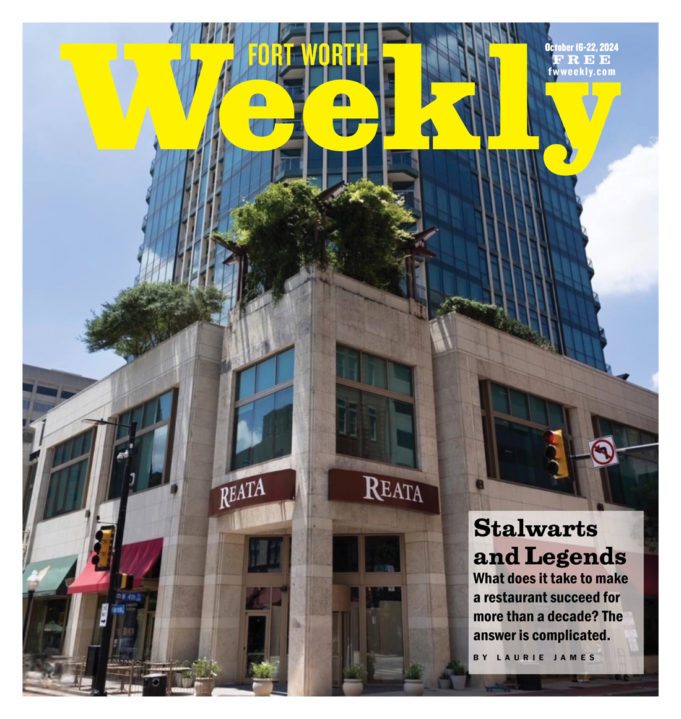Over the last 18 years as a food columnist, I’ve watched restaurants come and go. What makes a concept successful for the long haul? Some days, I shake my head and say, “Hell if I know.” The answer is more nuanced than you would think. Sure, location is important. Luck, a telegenic chef, good marketing, good experience, good staff, good food, and, at least in Fort Worth, good parking definitely play into the equation.
Both nationally and locally, most new restaurants will fail within the first three years of starting up. Perilously, a quarter of new restaurants fail in the first year, and it’s estimated that 60% of new restaurants close before they hit the three-year operating mark. A good run for a restaurant is about eight years. This dictum remains true no matter what economic crisis pops up and no matter which political party is in office. Whether it was world wars, the gas crisis and recession of the 1970s, the global recession of the late ’80s, the shock of September 11, 2001, another recession circa 2008-2009, or a global pandemic, it seems that every decade or so brings some fresh hell that affects the restaurant industry.
The reason most new restaurants don’t survive into their first decade has to do with, no surprise, real estate, according to Jeffrey Yarbrough. A fixture in the Fort Worth-Dallas restaurant scene for longer than I’ve been writing about it, Yarbrough is now the CEO of Big Ink Commercial Real Estate, serving as a business advocate and restaurant broker. He calls himself “a crazy reformed restaurateur” and still has works as a co-owner of Teddy Wong’s (812 W Rosedale St, Fort Worth, 817-349-8965). It’s possible that by the time you’re reading this, Yarbrough will have opened up a hot new concept in a part of town that’s going to be trendy in about three years.
If they’re not careful, new restaurant owners could find themselves on the ugly end of a rent increase. “Depending on how the lease was negotiated, you hear restaurateurs talking about rent doubling or tripling.”
The advocacy group the Texas Restaurant Association (TRA) says that only about a quarter of restaurant operators expected to make more money in 2024, four years after the pandemic forced the industry to pivot in unimaginable ways, so it makes sense, given how tenuous the industry is, that we should celebrate those restaurants in town which are celebrating their silver (25th) anniversaries or better.
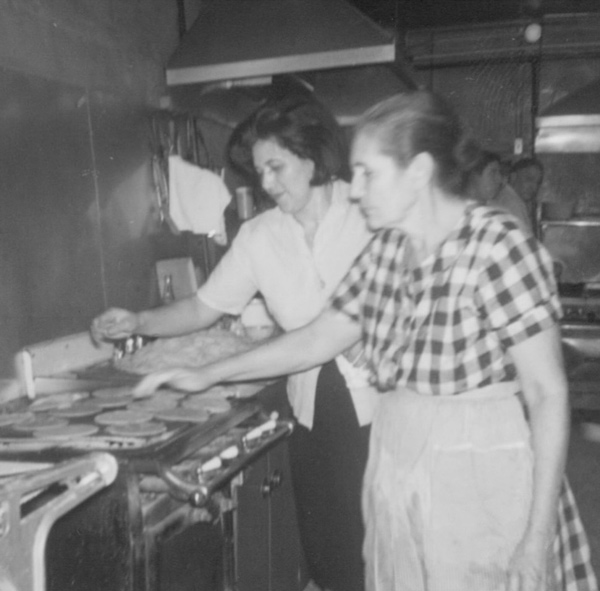
Courtesy Joe T. Garcia’s/Instagram
*****
There’s a little debate when it comes to the oldest restaurant in the county. Depending on the story you read, the Original Mexican Eats Cafe was opened in 1926 or 1930 by the Pineda family. The Original is still operational, although a lease dispute caused the restaurant to fold at its original location on Camp Bowie Boulevard. The Pineda family sold the place to their accountant in 1965, and since then, the ownership of the Roosevelt Specials and the claim to the “best enchiladas” has passed through several hands. You can still enjoy the Original at its second location, on the North Side (1400 N Main St, Fort Worth, 817-761-1890).
Riscky’s (multiple locations) is the product of Polish immigrants Joe and Mary Riscky, and because it was opened around 1927, the restaurants (currently owned by the fourth generation of Risckys) may actually own the crown for oldest restaurant in the Fort. The original Northside location was a grocery and market, and over the next 96 years, the place expanded into eight ’cue restaurants plus Riscky’s Steakhouse and Trailboss Burgers.
Carshon’s Deli (3133 Cleburne Rd, Fort Worth, 817-923-1907) opened in 1928, and although the family of Jewish immigrant David Carshon sold the business in 1982, the restaurant continues to operate pretty much as it always has.
Joe T. Garcia’s (2201 N Commerce St, Fort Worth, 817-626-4356) has been family-owned since 1935, and a cadre of fifth-generation Garcias and Lancartes keep the restaurant and sister eatery Esperanza’s (two locations) going. There’s a sweet story about the tenuousness of a family business here. You may not know that Joe Garcia died less than two decades after starting his eponymous restaurant. And that could have been the end of things. His wife Mamasuez Garcia and daughter Hope stepped up in a time when women just didn’t own businesses. Tenacity and a good enchilada recipe kept Joe T.’s afloat.
I hate to say it, but if this story is about local stalwarts, we’re not talking about women. In another 30, 50, 70 years, it will be different. Molly McCook, Amy McNutt, Hao Tran, Donatella Trotti, Bria Downey, and Shannon Osbakken are just some of the names we’ll be reading about in the future for their longevity. From the early days to today, though, men have been the owners and operators in food the same way they have owned and operated pretty much everything else.
Arlington’s restaurant industry lags behind Fort Worth’s –– but that’s not a surprise. Arlington’s oldest spot, The Candlelight Inn (1202 E Division St, 817-275-9613), opened in 1957 and was a favorite of General Motors workers at the nearby plant. The Inn closed in 2011, but new owners Alan and Bonnie Petsche rebuilt and reopened in 2014, keeping faith with the original for the last decade.
One of the key elements of longevity seems to be whether the beloved restaurant can be passed through family and whether said family members have the skill, talent, and ability to keep the place open against whatever odds the world tosses at them. Charles Kincaid opened Kincaid’s Grocery and Market (five locations) in 1946, and Butcher O.R. Gentry began cooking burgers on a small flat top for Kincaid’s customers in 1964. Gentry bought the restaurant, keeping the Kincaid’s name, and the restaurant is still owned by a third generation of Gentry’s family.
Angelo’s Bar-B-Que (2533 White Settlement Rd, Fort Worth, 817-332-0357) is also still owned by the original family — Angelo George opened the joint with his wife June, brother Orville, and son Skeet in 1958. When Angelo died in 1997, Skeet took over and kept the taxidermy. He died in 2017, leaving Angelo’s grandson Jason George to run the restaurant.
Ol’ South Pancake House (1509 S University Dr, Fort Worth, 817-336-0311) was founded in 1962 by the late restaurateur David Benson and his sister Bette. Current owner Rex Benson, David’s son, took over in 2011 and has kept the coffee and German pancakes flowing. He opened a Burleson restaurant in 2021, and earlier this year, he took over the nearby shell of the defunct Romano’s Macaroni Grill next door, and now it’s Rex’s Bar and Grill (1505 S University Dr, Fort Worth).
Tommy’s Hamburger Grill (multiple locations) was started in 1982 by the husband-and-wife team of Tommy and Glenda Smith, and the restaurant remains in the family, with the five current locations managed by the Smiths’ daughter Kelly.
To Eric Griffey, a former Weekly food writer who, among other things, manages the Facebook page “Fort Worth: I Ate This Food and I Liked It,” Joe T.’s, the Original, and Riscky’s are “mother’s milk restaurants” –— places that set your baseline for what a certain cuisine should taste like.
“Carshon’s, Kincaid’s — these are the places I grew up on,” Griffey said. “They may have opened during a time when there wasn’t a lot of competition. People go out of habit, so their children went, and their children’s children will go there.”
Our oldest food memories as legacies aside, places like the Original and Carshon’s are full of food that tastes like what we have come to believe is authentic, whether that’s true or not. We aren’t saying they’re the best at that particular cuisine — as Griffey says, “They’re good enough.”
Joe T.’s has confounded food critics like myself by staying open. The food is average, and the drinks are expensive. Sister restaurant Esperanza’s offers much more creative menus.
“But we don’t go to Joe T.’s for the food,” Griffey said.
We go to see and be seen.
“Until diners demand better, we’re going to be stuck in neutral.”
Yarbrough said he goes to Joe T.’s at least annually for birthday celebrations because it’s become a tradition but also because he’s recognized there and welcomed, and that level of service is possibly enough to keep him going back to any eatery.
His point is well-taken: There are too many choices for us to go back for bad service. “Fort Worth is not that forgiving,” Yarbrough said.
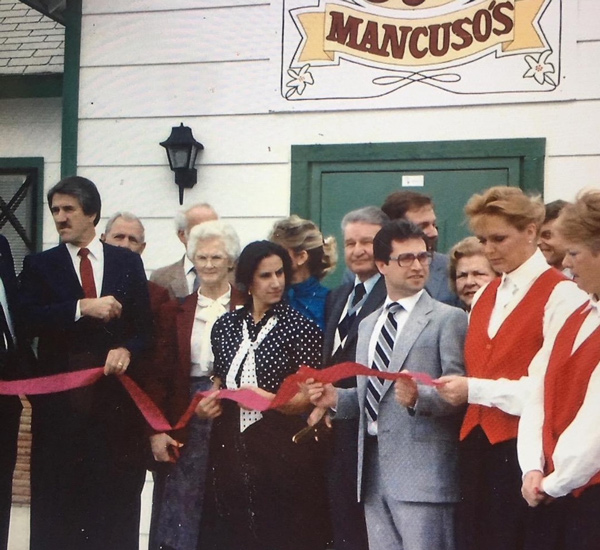
Courtesy Mancuso’s Italian Ristorante/Instagram
*****
Perhaps the next best thing to family continuing the tradition is a former employee who knows the traditions to take over. The original Fred’s Texas Cafe in the West 7th corridor was started by Gari and J.D. Chandler in 1978, but you’re probably more familiar with the ownership of the Chandlers’ son Terry, the self-proclaimed Cowboy Chef. Fred’s was there before Montgomery Plaza and West 7th changed the face of that part of downtown. Former cook Quincy Wallace has co-owned Fred’s since 2011. As the current owner, Wallace cited the changes in the area skirting what is now Artisan Circle, the number of frat-bro fights, and the nonsense from the property owners about parking as reasons that the seminal restaurant faded into the sunset there. Your Fredburger lives on in two other locations, one in North Fort Worth and one off Camp Bowie West.
Mama’s Pizza (multiple locations) opened its first location on East Rosedale Avenue in 1968. Owner Ed Stebbins sold the pizzeria in 1970. The franchise expanded perilously in the late 1970s, and due to some quality control issues and market saturation, many of those locations closed in the 1980s. In 2003, longtime employee Jordan Scott inherited the chain, and Mama’s survives with nine Tarrant County locations, along with shops in Hudson Oaks, Burleson, Granbury, Dallas, and (get ready to clutch those pearls) Houston opening soon.
In 2020, restaurateurs Lou Lambert, Chris Reale, Robert Chieffalo, and Mark Harris took over the then-85-year-old Paris Coffee Shop (704 W Magnolia Av, Fort Worth, 817-945-1702). Lambert, a TCU alum, had strong feelings about the restaurant’s history in the community. The group minimally modernized the stalwart diner’s menu and updated the furniture and fixtures. The next year, the group also revitalized Roy Pope Grocery & Market (2300 Merrick St, Fort Worth, 817-732-2863), which opened in 1943, took a small hiatus in 2020, and reopened in 2021. Roy Pope is now owned by local residents Ben and Lauren Klipfel.
The Pulido’s Mexican Restaurant chain (multiple locations) was founded in 1966 by Pedro and Dionicia Pulido. The restaurant was ready to fold in 2023. Enter: The Westland Group, helmed by restaurateurs Gigi Howell and Bourke Harvey. Howell has publicly affirmed her love of the place, and The Westland Group barely skipped a beat. So far, they’ve reopened three of the Pulido’s spots, modernizing the bar and adding a few cosmetic touches.
The 42-year-old Mercado Juarez chain is being salvaged by From Scratch Hospitality. Owner Marcus Paslay (Clay Pigeon, Piattello, Walloon’s) tapped Russell Kirkpatrick to oversee the two locations in Arlington and one on the North Side. Kirkpatrick cited the restaurant’s passionate fan base as reason enough for keeping the lights on.
Fan bases aside, most new restaurant owners don’t seem to have the capital that the Lamberts and Paslays do. Most experts estimate new restaurants won’t be profitable for at least the first 18 months.
Yarbrough also points to the need for new restaurants to offer some flexibility with their cuisine. “Politics and diets can go bad. If you’re in fragile economic times, and then there’s a no-carb fad, can you run a pasta restaurant?”
The combination isn’t worth thinking about, unless you’re ready to pivot.
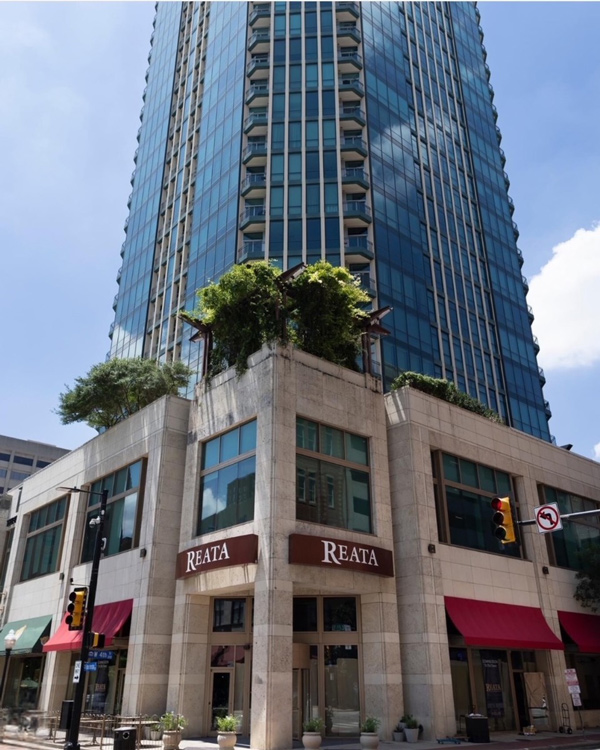
Courtesy Reata/Instagram
*****
1987 seems to have been a great year for restaurants, although it was also about the time of a national recession. Cathy Mancuso was a New York transplant when she started Mancuso’s Italian Ristorante (9500 White Settlement Rd, Fort Worth, 817-246-7041) in 1987. The family lore is that Mancuso realized the Italian food she grew up eating and making wasn’t available in the Fort –– so she fixed that, but good. Her son Michael keeps the family business going. Drew’s Place (5701 Curzon Av, Fort Worth, 817-476-1857) started in Como, and Drew keeps chugging along, although not every day –– he’s closed on weekends now. And Mac’s Bar and Grille (6077 W I-20, Arlington, 817-572-0541) continues to excel, especially with their martini, prime rib, and salad studded with real blue cheese. Mac’s is now owned by Rena Frost, who worked for the original owner Mike McMahan. Reata Restaurant (550 Throckmorton St, Fort Worth, 817-336-1009) opened in 1996. It survived the 2001 F3 tornado that took out part of downtown and also three location changes, most recently a move back to the original Tower spot from their beloved Sundance Square building, which has been the home to the carne asada and cheese enchiladas, CFS, and the extensive wine list since 2002.
Fort Worth’s Reata Restaurant is the second of two –– owner Mike Micallef’s father Al, so the story goes, wanted a steakhouse in Alpine, so he built one in a restaurant that was formerly a sub sandwich shop. Micallef says that Al’s lived experience in business was beneficial to the success of Reata in Fort Worth.
“Al grew a business out of bankruptcy,” Micallef said. “The principles are the same whether you’re in manufacturing or in a kitchen.”
It may be easier to run a restaurant when you have the basic concept of the algebra needed to know how much a widget (or a tamale) costs.
Over the last 28 years, Reata successfully weathered all challenges. But this year, Reata’s owners went through a very public dispute with their former landlord in Sundance Square. Leaving Fort Worth was never really an option. The walkability of Fort Worth’s downtown is the secret to the restaurant’s success, he said.
Yarbrough agrees. “Real estate is what puts restaurants out of business.”
Building relationships with landlords, vendors, and suppliers is critical, so restaurateurs don’t have to continually price-shop. And when the hammer drops on a lease, it makes it easier to pick up the pieces.
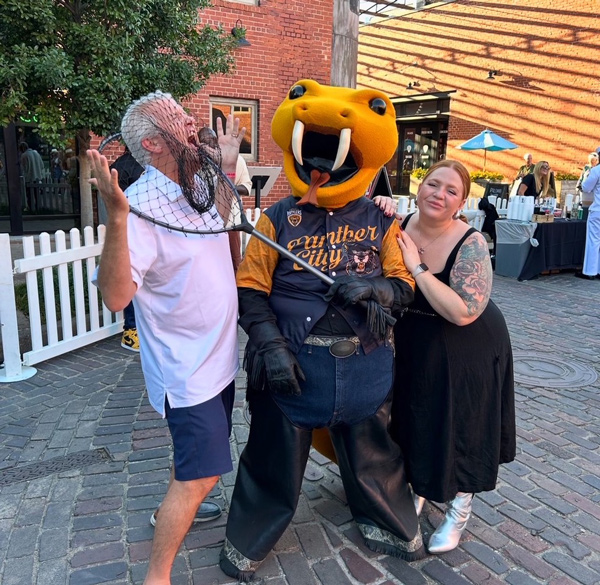
Courtesy Bonnell’s Fine Texas/Instagram
*****
Lonesome Dove (2406 N Main St, Fort Worth, 817-740-8810) will celebrate 25 years next year. Chef Tim Love’s Love Management, Inc. reps nine venues in the Fort, Dallas, Austin, Denton, and elsewhere, including Knoxville, Tennessee. And Bonnell’s Fine Texas Cuisine is almost to the golden anniversary mark, celebrating 23 years this fall. Owner Jon Bonnell now oversees five spots, including three fast-casual places and two white-tablecloth enterprises, Bonnell’s Fine Texas Cuisine (4259 Bryant Irvin Rd, Fort Worth, 817-738-5489) and Waters Restaurant (301 Main St, Fort Worth, 817-984-1110). Bonnell opened his Fine Texas Cuisine in October 2001, a month after the September 11 attacks when he was arguably too far in to quit. He credits his culinary school experience in 1988 as part of the reason he’s been successful.
“We had an assignment to create a restaurant with a concept, design a menu, and cost out each item,” he said. “It couldn’t all be steak or chicken. I took the opportunity to do my research and put Bonnell’s together.”
Bonnell said that the hardest part of his business is finding the right people. Of the staff who opened Bonnell’s Fine Texas Cuisine in 2001, 11 are still there.
“The hardest part of this business is labor,” he said. “If you want to keep your staff, be the opposite of Gordon Ramsay. Treat people with respect.”
Yarbrough doubles down on that statement. “Staff who stay for the long haul and know the menus and guests — that’s worth something.”
To combat the gig economy, he says he has to compensate the staff to not leave. “Labor costs, food costs, rent, and credit card fees are crippling the industry.”
TRA also reported that food prices alone remain 25% higher than pre-pandemic levels. More Perfect Union also alleges that a group of meat processors are sharing information to fix prices, driving up the cost of chicken and turkey, which is a whole other issue.
But after weathering an economic collapse about eight years in to his first restaurant and the global pandemic, Jon Bonnell disagrees that the cost of consumable goods is related to any entity’s monopoly over a subset of the goods.
“In our restaurants, we’re buying from people across the board, not just one source,” he said. “The price of labor is the highest it’s ever been.”
Reata’s Mike Micallef agrees. “The difference is that during the recession, the cost of commodities went down,” although the attendance at his restaurant decreased, Micallef said. “If you looked at our bottom line, the cost of labor and the cost of nobody eating out in downtown balanced out. Now the cost of commodities is still high post-COVID.”
Yarbrough said that on average, restaurateurs are working on a 5% margin or less, and it’s not just in food –– the price of tequila has gone up 300% over the last few years. My favorite martini at Mac’s, which cost $7 pre-pandemic, is now $10. Yarborough says that the restaurant didn’t just arbitrarily change pricing just to make more money –– the increase may mean they’re breaking even.
So, what would these four experts advise new restaurateurs?
“You need to be able to do the math,” Micallef said. Also, he takes issue with the media’s love of celebrity chefs and our collectively short attention span. Building a business on a telegenic personality is no way to run for the long haul. “Don’t brand on a chef. Create a team.”
Bonnell agrees: If you walk into one of his five restaurants, it’s unlikely you’ll see him.
“I am not in the kitchen cranking out dishes — it’s a young man’s game,” he said. “I am more overseer of a brand than a chef of a building.”
He said the secret is “hiring someone as good or better as you and then let them go to it.”
Because he is his own best brand ambassador, Bonnell jokes that people who say they know him often ask for him in the dining room. “ ‘I know Jon is he here?’ ” he said with a laugh. “No, but Chef Kobi [Perdue] is happy to show you around the garden.”
Also knowing that you make a certain dish taste good isn’t a guarantee of success.
“Get a job in the industry for a few months before you decide you want to go to culinary school,” Bonnell said. “Lots of people can make food taste good, but how do you make a business out of this?”
Griffey’s advice is more succinct. “You better have a CFS on the menu.”
Yarbrough encourages new restaurateurs not to lean on their own understanding. “Build a team with a lot of knowledge and experience to help you through all the phases. Have a very solid budget, your capital in place, find a real estate broker who will help you find a site, and have a real business plan.”
Bonnell’s final words of wisdom: Although Fort Worth is a large city, “it’s a small town, and everyone knows everyone. Be respectful. Be nice. Fort Worth people look after our own.”



